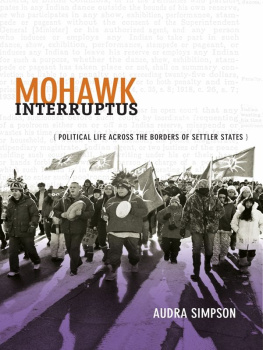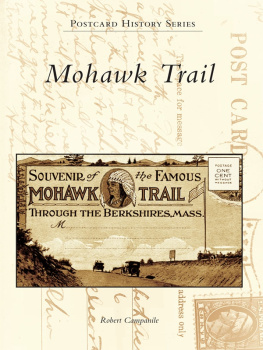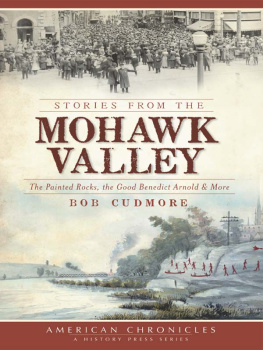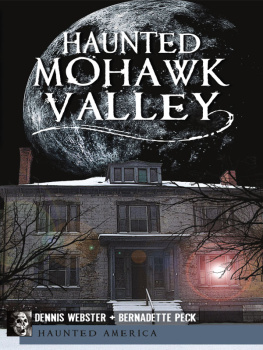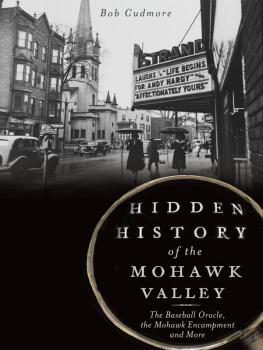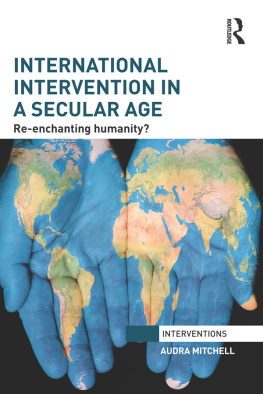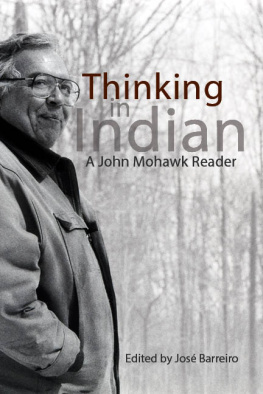Audra Simpson - Mohawk Interruptus
Here you can read online Audra Simpson - Mohawk Interruptus full text of the book (entire story) in english for free. Download pdf and epub, get meaning, cover and reviews about this ebook. year: 2014, publisher: Duke University Press, genre: Politics. Description of the work, (preface) as well as reviews are available. Best literature library LitArk.com created for fans of good reading and offers a wide selection of genres:
Romance novel
Science fiction
Adventure
Detective
Science
History
Home and family
Prose
Art
Politics
Computer
Non-fiction
Religion
Business
Children
Humor
Choose a favorite category and find really read worthwhile books. Enjoy immersion in the world of imagination, feel the emotions of the characters or learn something new for yourself, make an fascinating discovery.
- Book:Mohawk Interruptus
- Author:
- Publisher:Duke University Press
- Genre:
- Year:2014
- Rating:4 / 5
- Favourites:Add to favourites
- Your mark:
- 80
- 1
- 2
- 3
- 4
- 5
Mohawk Interruptus: summary, description and annotation
We offer to read an annotation, description, summary or preface (depends on what the author of the book "Mohawk Interruptus" wrote himself). If you haven't found the necessary information about the book — write in the comments, we will try to find it.
Mohawk Interruptus — read online for free the complete book (whole text) full work
Below is the text of the book, divided by pages. System saving the place of the last page read, allows you to conveniently read the book "Mohawk Interruptus" online for free, without having to search again every time where you left off. Put a bookmark, and you can go to the page where you finished reading at any time.
Font size:
Interval:
Bookmark:
{ POLITICAL LIFE ACROSS THE BORDERS OF SETTLER STATES }
Audra Simpson
Duke University Press
Durham and London
2014
2014 Duke University Press
All rights reserved
Printed in the United States of America on acid-free paper
Designed by Heather Hensley
Typeset in Warnock Pro by Copperline Book Services, Inc.
Library of Congress Cataloging-in-Publication Data
Simpson, Audra.
Mohawk interruptus : political life across the borders of settler states / Audra Simpson.
p. cm.
Includes bibliographical references and index.
ISBN 9780822356431 (cloth : alk. paper)
ISBN 9780822356554 (pbk. : alk. paper)
1. Mohawk IndiansQuibec (Province)Kahnawake Indian ReserveEthnic identity. 2. Mohawk IndiansQuibec (Province)Kahnawake Indian ReserveHistory. I. Title.
E99.M8S56 2014
971.4004'975542dc23
2013042833
ISBN-13: 978-0-8223-7678-1 (electronic)
IN LOVING MEMORY:
Danielle N. Terrance,
19732013
A best friend to all of us.
Much of this book is about the labor to live a good life. The people of the Mohawk nation at Kahnaw:ke do this work with great verve and equanimity, while enduring and pushing against the ongoing stress and structure of settler colonialism. Their commitment to the principle of a good mind and to the struggle to maintain and then assert that principle has inspired and forms the core questions of this book. I am deeply, deeply grateful to them for this, and for holding on to everything.
Kahnaw:ke, the Mohawk Nation, and the Haudenosaunee are embedded conceptually and in different ways politically in the global category of Indigeneity and of course, by extension, Indigenous peoples. I owe an ongoing debta general one that is so broad and simultaneously categorical as to seem abstract, to those whose lives and lands brought forth the questions that animate this book. Indigenous peoples within and beyond Kahnaw:ke continue to strive and in so doing sustain questions of profound theoretical and political importancequestions of persistence, vigor, and dignity in the face of grinding poweras well as the disavowal of staggering wrongdoing.
I am fortunate to be around people who care deeply and think very hard about these sorts of things. I am especially grateful to Beth Povinelli, Roz Morris, Lila Abu-Lughod, Brinkley Messick, and Nadia Abu El-Haj for their careful readings, before which this was a different book. I am grateful to the entire AnthropologyDepartment at Columbia. Mellie Ivy, John Pemberton, and Mick Taussig are not only great thinkers and ethnographers; they are my neighbors. I am grateful to them and every single one of the scholars for their collegiality, their support, their acuity of vision, and their analysis. Brian Boyd, Zoe Crossland, Terry D'Altroy, Cassie Fennell, Severin Fowles, Brian Larkin, Hlonipha Mokoena, Lesley Sharp, and Paige West are intellectually and interpersonally, and quite simply, great colleagues.
This book has had a long life to fruition and so has traveled with me from place to place. It started as a dissertation that was written in the Department of Anthropology at McGill University. There it had the good fortune to be directed by Colin Scott and the late Bruce Trigger. During the final revisions of this book, the enormity of Bruce Trigger's loss to this field and to my own thinking was felt acutely, and over and over again. I wish very much that he were still with us. My first job was at Cornell University, where I had wonderful colleagues. I am indebted to the Department of Anthropology there, where my thinking was supported and my days well spent.
For years I have been in conversation with individuals who have helped this work along immensely. They have come to the fore to help to figure things out, read drafts, convene panels, push arguments, and tend to queries over e-mail and on the phone. Jessica Cattelino, Mishuana Goeman, and Andrea Smith have been key thinking partners through the course of this book. They have stopped everything at certain points in their own writing and lives and helped me to puzzle through matters pertaining to this workthis is collegiality that is rare and is precious. While I was revising this book, Robert Nichols was on fellowship at Columbia, and I was able to talk to him about its argumentation and claims. I am grateful to him for his intellectual generosity during a crucial time.
My dear old friend (and former favorite sparring partner) is Gerald (Taiaiake) Alfred, who wrote the first political analysis of our community in 1995. In doing so, he implicitly and explicitly prompted me to write another. He has been a great mentor and friend. Here the list is long, and it is not detailed enough. Each of these great people deserve paragraphs upon paragraphs of praise: Chris Andersen, Joanne Barker, Ned Blackhawk, Kevin Bruyneel, Bruno Cornellier, Glen Coulthard, Jennifer Denetdale, Vince Diaz, Alyosha Goldstein, Sandy Grande, Khaulani Kauanui, Scott Lyons, Dian Million, Aileen Moreton-Robinson, Scott Morgensen, MichaelOrsini, Michelle Raheja, Jackie Rand, Justin Richland, Mark Rifkin and Dale Turner are scholars, colleagues, and more often than not, truly outstanding friends whose thinking, work, and example have had a profound effect upon my own.
Similarly, but very specifically, acknowledgments just fall apart when I am confronted with thanks for my friends and colleagues in Haudenosaunee studies. Sue Hill, Kurt Jordan, Theresa McCarthy, Rick Monture, Vera Palmer, Jon Parmenter, and Jolene Rickard have been conversation partners through the years (good, long years now), and are also people whose work I greatly require and enjoy. Rob Odawi Porter and Carrie Garrow have been wonderful, from afar, as has Martin Cannon. Although Deborah Doxtator is on the other side of the sky, her work has been critical to my own. I would be remiss if I did not mark her deep importance in the field of Indigenous history and, most specifically, to the project of renewing Haudenosaunee studies. Ellen Gabriel has been a rock among our people but also a steady and elegant friend to my thinking and research.
Jasmin Habib is a scholar whose industry, grace, and ethical standard has been important to my own; she is also a person with whom I love to laugh. I am so grateful to her for this. Profuse thanks go as well to Whitney Battle-Baptiste, Sean Brotherton, June Kitanaka, Kristin Norget, Jessica Winegar, and Vinh-Kim Nguyen, great friends and colleagues who have shared conversations about this work. Sora Han, Nadine Naber, and Jodi Kim have engaged with the argumentation, and are scholars whose work serve as models of critical ethical posture and rigor for my own. I will never forget the early support and advice of Karen Blu, as I started my cross-border research, nor the late Robert Paine, as well as the late and still deeply missed Gail Guthrie-Valaskakis. Fred Myers and Faye Ginsburg have been supportive of this project since before day one.
Frances Negrn-Muntaner has helped to make Columbia a place where Indigenous studies can flourish through her early and ongoing efforts through the Center for the Study of Race and Ethnicity (soon to be Center for the Study of Race, Ethnicity, and Indigeneity). I thank her for her institutional flexibility, her enthusiasm, her ongoing support of all that is done in our field. Aaron Fox is also a terrific colleague whose own scholarship and effort and does much for Indigenous studies (and people!) at Columbia.
I have presented earlier and greatly redacted versions of this work at University of Victoria, Northwestern University, McGill University, Universitde Montral, University of California (Riverside), Wilfrid Laurier University, University of Illinois (Champaign), University of Chicago, Kanien'keh:ka Onkwawn:na Raotitihkwa Language & Cultural Center, University of Michigan, Syracuse University, McMaster University, Tufts University, Williams College, Columbia University, Harvard University, New York University, Cornell University, and the State University of New York, Buffalo. I am grateful for the incisive comments and suggestions of the scholars at these talks, all of which greatly improved the following book.
Font size:
Interval:
Bookmark:
Similar books «Mohawk Interruptus»
Look at similar books to Mohawk Interruptus. We have selected literature similar in name and meaning in the hope of providing readers with more options to find new, interesting, not yet read works.
Discussion, reviews of the book Mohawk Interruptus and just readers' own opinions. Leave your comments, write what you think about the work, its meaning or the main characters. Specify what exactly you liked and what you didn't like, and why you think so.

